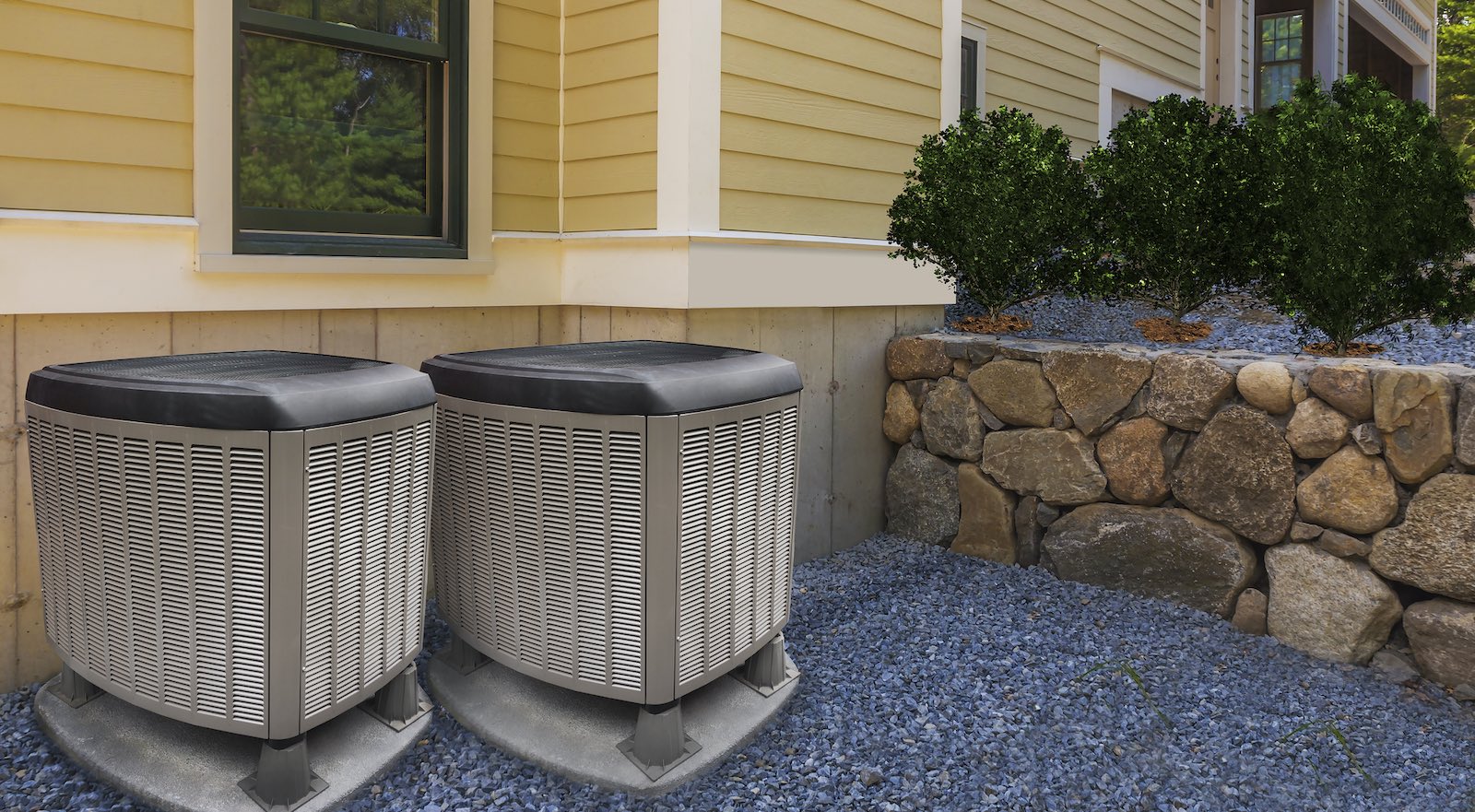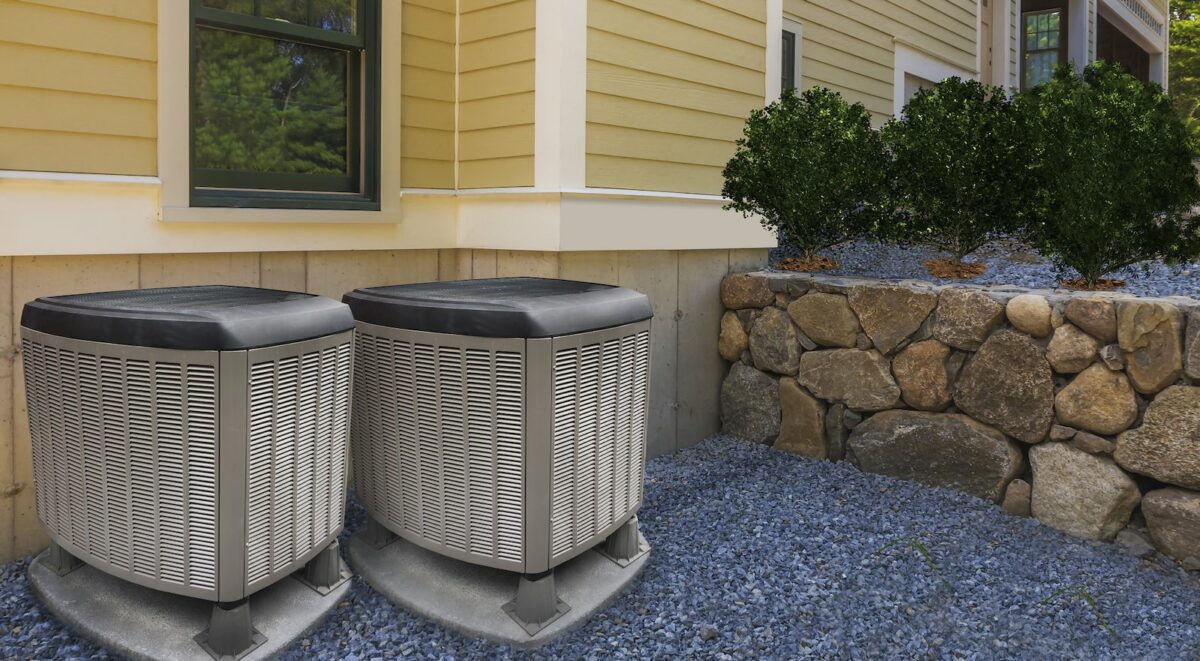
Installing an air conditioner may seem like an uncomplicated job, but many factors affect the unit’s efficiency. If you purchase one that’s too small, it’s going to struggle to meet the cooling demands you place on it as well as soaring energy bills. Purchase one that’s too big, and you’ll struggle with humidity issues, and a unit that cycles on and off too frequently.
Most people think that to get the right-sized air conditioner all you have to do is measure the square footage of the house. While that is important, other aspects of the home also play a role in determining which size air conditioner to buy.
Air Conditioner Size Definitely Matters
Taking the time to understand what size unit you need can save you a lot of stress and money later down the line. A correctly sized air conditioning unit will:
- Run at optimum efficiency and energy consumption.
- Cost you the minimum amount possible on your energy bills.
- Maintain a pleasant, ambient temperature throughout the house in all seasons.
- Break down less and require less maintenance.
- Reduce or eliminate the need to use other heating and cooling appliances.
What Do we Mean About Air Conditioner Size?
When we talk about size, we’re not referring to the dimensions of the unit but rather the energy output. AC units are measured by tonnage, and a single AC ton is equivalent to 12,000 BTU (British thermal unit) per hour which equates to approximately 3,500 watts of cooling power.
As a broad example, a 2,500 square foot home typically requires a 3.5-4.5 ton unit, but other variables may affect this.
What to Consider When Choosing an Air Conditioner Size
The factors that matter when choosing your air conditioner size are:
- Square footage of the home
- Ceiling height
- Roof type
- Number of windows
- Type of insulation
Manufacturers will put size guidelines on their packaging. However, these are usually inaccurate because they only take the square footage into account.
Measuring the Square Footage of Your Home
To work out how big your home is, simply take each room and measure its width and length. Multiply the width by the length, and you have the square footage for that space. Add up all the totals for each room in the house and you’ll have the grand total of square footage.
If your house is fully permitted, you could also try looking up your square footage on Zillow or other real estate sites – just plug in your address!
How to Work Out What Size Air Conditioner You Need
Once you have the total square footage, you must multiply that figure by 25 to get the right BTU for the space. For example, a 200 square foot space multiplied by 25 is 5,000 BTU.
Considering Other Factors
If you have higher than average ceilings, you’re going to need to increase the capacity of your air conditioner. This is because a higher ceiling means there’s more air in the room that needs to be cooled.
Houses that aren’t well insulated will also require an air conditioner to work harder, so a larger size will be required.
Most calculations are based on each room having one window. If you’ve got a large number of windows on your property, this will increase the amount of heat coming in during the day. Therefore, your air conditioning unit will need to work harder.
Don’t forget to factor in the climate of where you live. Hot, humid areas will require larger units than cooler or dryer regions.
It’s also recommended to increase the AC units capacity by 600 BTU for every person that lives on the property. Since humans generate heat, your unit will need to increase its output if there are several people in the home.
Single Room Air Conditioner or Central AC?
You can either place an air conditioning unit in each room or have a central unit for the whole house. What works for you depends on the size and layout of the home. If your home is fairly compact with plenty of airflow, then a central unit will likely work best. On the other hand, if your home is large and quite spread out, then you may benefit more from separate units.
If you cannot decide what’s best, talk to an expert who will be able to advise you on what would be more efficient.
Placement of the Unit is Important
You must consider where you’re going to place your unit as this can significantly affect its output. For example, if you plan to place it in or near the kitchen, don’t forget that many kitchen appliances heat up, so this is going to affect the overall temperature of the space. An air conditioner placed near heat sources will have to make extra effort to cool the air, so it’s not the best place to put the unit.
Also, if you place it in drafty areas such as near the main entryway, it can cause the AC unit to think it’s cooler than it actually is. This means the AC won’t work as hard as it needs to get the rest of the house cool enough. Placing it somewhere that’s away from cool airflow or heat sources is going to ensure you get the most efficient use out of your air conditioner.
It can seem like a minefield when selecting the right sized unit for the job. If you’re in doubt, consult an expert as they will be able to assess your home and offer the best suggestions for AC unit sizes. It’s always going to be worth getting it right because a correctly sized air conditioning unit will save you a ton on your energy bills and ensure your home is kept pleasantly cool when needed.

